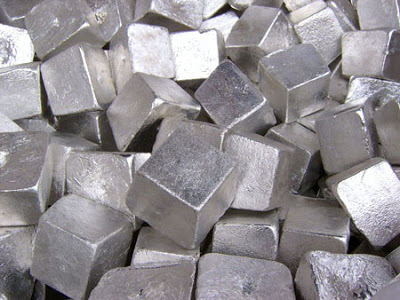Rwanda is set to host the blockchain-powered tantalum-tracking platform, the first of its kind in the world, aimed at finding solutions towards conflicts surrounding mineral development in the country.
Tantalum is a mineral used in the manufacture of electronics and the new blockchain platform powered by Circulor in partnership with Rwanda’s mining board, is expected to track it from the mining source to the refinery.
This is expected to ultimately attract potential investors who seek a conflict-free source of minerals into the country.
“Companies will be able to use Circulor’s platform to tag and trace tantalum mined in Rwanda as it passes through the supply chain. Mining company PRG Resources, who are in Apple’s supply chain as a producer of tantalum, ran the pilot and are now using the production system,” a statement released by the Circulor reads in part.
Trade in tantalum, just like other minerals in Africa has come under scrutiny because it is normally shrouded in controversy and has been known to contribute towards the financing of many terrorist groups and other crimes such as human trafficking.
But the blockchain platform developed by Circulor will allow consumers of minerals (tantalum) understand where the origin of the materials they bought for manufacturing and also make it harder for “materials that are not ethically sourced to pass through the supply chain.”
Francis Gatare, the chief executive of Rwanda’s Mining, Petroleum and Gas Board, says it is “vital for Rwanda to prove it was a conflict-free source of tantalum”.
“Blockchain is one of the technologies that has demonstrated capabilities of providing a more efficient and effective way of delivering traceability for commodities,” Gatare is quoted as saying by Reuters.
Must read: Rwanda national currency now on blockchain
In Rwanda, Tantalum remained one of its greatest exports but its conflict minerals nature has waded off investors interested in mining in the country.
In 2014, the East African country was the largest producer of Tantalum, producing 50% of global tantalum concentrates, rising from 12% in 2000.
Over the years, smartphone makers and electronic have been under intense pressure to drop the ‘blood mineral’ from DRC Congo and its neighboring countries.
It affected countries like Angola, Burundi, Central African Republic, Republic of Congo, Rwanda, South Sudan, Tanzania, Uganda, and Zambia.
In the wake of a global boycott by companies, Rwanda was also indicted in a report by ABC over the smuggling of tantalum into the country, further casting doubt over the traceability of the mineral in the country.
According to ABC, the Rwandan army made at least $250 million over a period of 18 months through the sale of coltan, even though no coltan is mined in Rwanda.
In the US, the Dodd-Frank Act signed by President Barack Obama in 2010 also requires that ‘companies from the United States of America must trace the source of minerals.’
After many years, the Rwandan government has been making constant efforts to develop a mineral traceability programme.
The new blockchain technology employed is an indication of the government’s readiness to address the conflict-nature of its minerals and clean the mineral supply chain.
Related:
Cryptocurrency dealers in Uganda call for calm amid declining bitcoin prices
Chinese billionaire launches cryptocurrency exchange in Uganda

